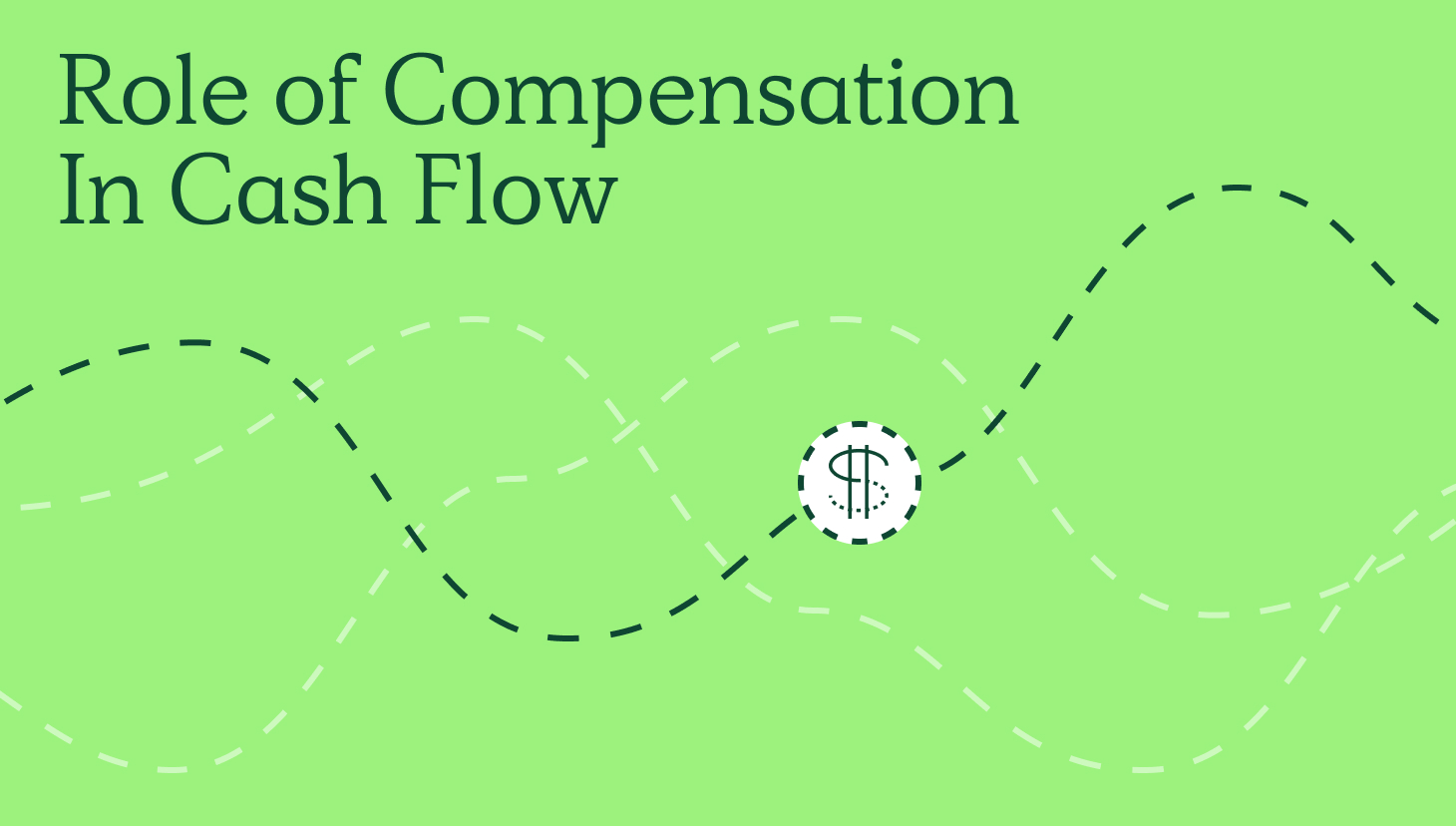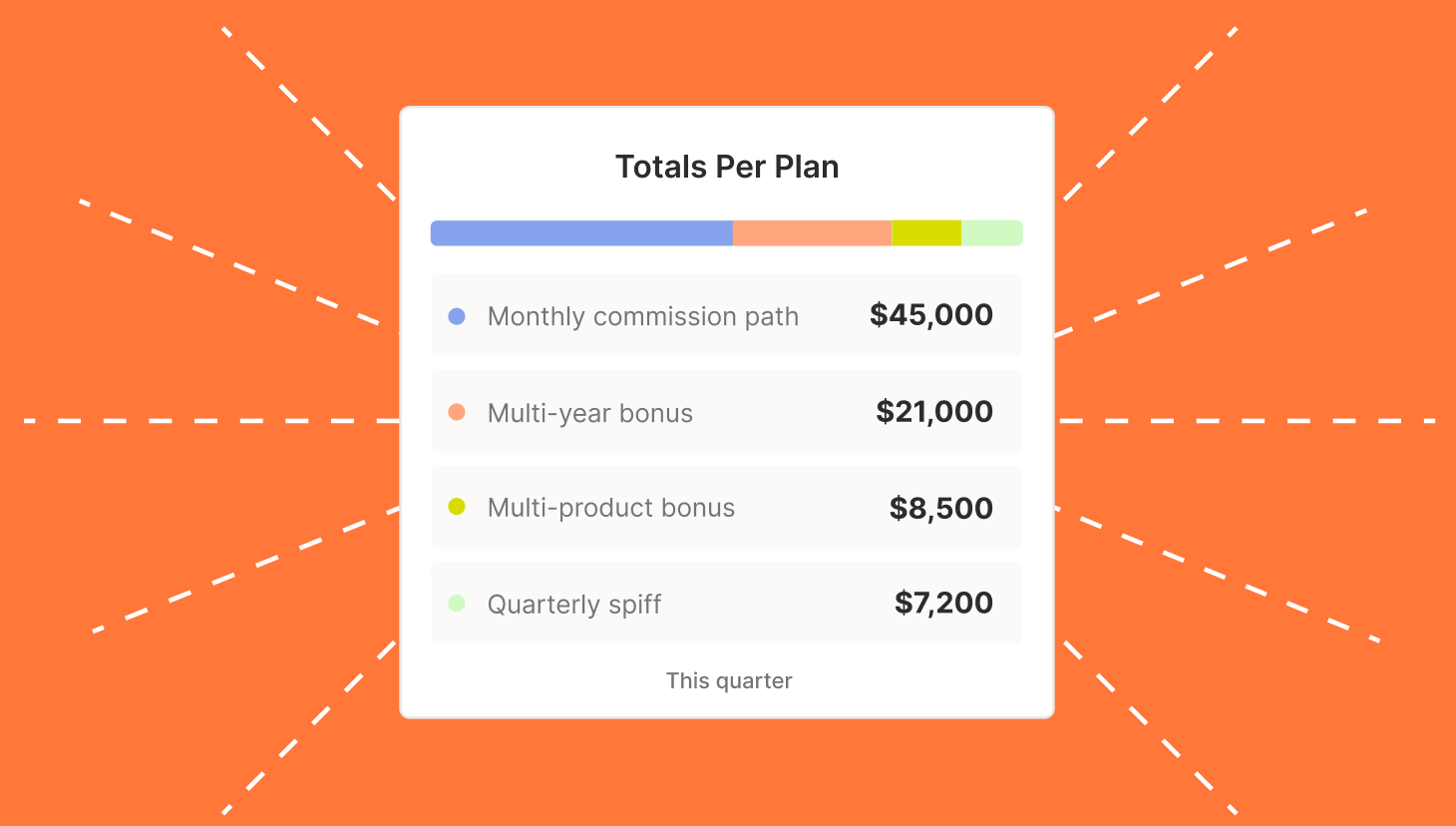Building a startup sales compensation plan that works for your company can be extremely tricky.
Oftentimes, it takes multiple iterations to reach an appropriate startup sales commission structure.
This blog will cover seven principles that will help accelerate the process of finding a sales commission structure for startups. Not sure what a compensation plan is? Check out this blog post to learn about the basics of a compensation plan.
First, there are three factors that need to be considered when creating a startup sales compensation plan.
Try QuotaPath for free
Try the most collaborative solution to manage, track and payout variable compensation. Calculate commissions and pay your team accurately, and on time.
Start TrialSize/Stage of the startup
An early-stage startup typically has fewer employees and an inconsistent revenue stream. This is the stage when figuring out a solid sales strategy and understanding your value proposition is key in scaling revenue. In the growth stage, a startup is most likely to figure out how to optimize their sales strategy. No matter what stage, the sales strategy is going to have to adapt to the needs of the business. Once the startup is more established it becomes a lot easier to project sales targets based on historical data.
Runway
Startups are typically strapped for cash (or at least careful with where their cash is going). This means that the design of the compensation plan itself needs to be planned out to maximize efficiency early on. Cash-strapped startups make higher base salary compensation plans nearly impossible since there isn’t much cash in the bank. This holds especially true for companies that are pre-revenue. Having a blended mix of salary and commission is probably going to be the best compensation plan for the majority of startups. Don’t forget that equity is a powerful tool you can use as well!
Industry
This one is pretty obvious. Sales compensation plans can look different across various industries.
“SaaS companies typically have annual contracts, whereas consulting companies may have a month-to-month agreement,” QuotaPath’s Head of Growth, Graham Collins shared, “so you have to pay your sales reps accordingly. Do some research on the way your competitor’s bill and therefore pay their sales reps.”
7 tips for building a startup sales commission structure
1. Don’t overcomplicate the startup sales compensation plan
Keep it simple. The general rule is that if you can’t explain your sales compensation in one or two sentences, it’s probably too complicated. We wrote all about what makes a good compensation plan in a previous post.
Typically, a blended method with 50% salary and 50% commissions is the standard split for most startups. Of course, this is assuming that the product is fairly simple to sell and has a shorter sales cycle. If the product is more difficult to sell, it might be wise to do a 75% salary to 25% commission split. This will help with churn on your sales team. If you’re early stage and having to do an even higher salary to commission split, it might be too early to hire sales reps. In this case, you should consider focusing first on improving the product.
2. Be sure to cultivate the right culture
Cultivating the right culture for your startup, specifically on your sales team, is extremely important. When building your early sales team, it’s important to hire the right sales reps. You want reps that understand the problem you are solving and resonate with the mission of the company. The early hires are going to set the precedent for the sales team as the startup scales, so it’s important to vet them properly. It might even be helpful to hire someone with more experience in sales, to help train the next couple of hires. Our CEO, AJ Bruno, goes into more detail about how to cultivate the first sales hires into champions in this post.
There’s something to be said about creating a culture of competitiveness to keep reps motivated. However, be careful to not allow this to transform into a cutthroat sales culture where everyone acts as a “lone wolf.”
3. Make sure your reps have a clear understanding of your value proposition and your target market
At an early stage startup, the founder is typically the first salesperson. They need to be able to clearly convey their vision and drive to their sales team. If reps don’t have a clear understanding of the product’s value, it can be difficult to get initial customers to buy into the vision. If the founders can’t sell the product, there is a good chance that the sales team won’t be able to either. Check out this blog post for more on why product knowledge is key to the success of your sales reps.
4. Ensure quotas are attainable for your reps… but not TOO attainable
If only a small percentage of your reps are consistently hitting their quota, that may be a sign that the quotas are too high. Whereas if all your reps are hitting quota easily, that’s an indication that your quotas are too low. Even if you have superstar sales reps that hit their quota every quarter, you should also cater to the reps that aren’t as consistent.
If a rep is struggling to hit their quotas, the sales manager should focus on trying to improve the rep’s performance. QuotaPath is a great way to motivate your reps. They can visually track their progress and see how they compare to their fellow reps. Another way to help struggling reps is to sit in on their conversations. You’ll be able to see what the rep is potentially doing wrong and provide constructive feedback. If that isn’t working, it might be time to hire someone new to replace the lagging rep.
5. Make sure the B2B sales commission structure aligns company goals with the rep goals
A friction point that startups and companies with high sales rep churn face is misalignment between company goals and the reps’ goals. The person running the sales team needs to understand what drives each of their reps to succeed. An example of not understanding the reps’ goals is capped commissions. Very rarely, if ever, do capped commissions make sense, especially if a startup is looking to grow as fast as possible. For more info on capped commissions, check out this blog post about why capping your team’s commissions is almost never a good idea.
Create Compensation Plans with confidence
RevOps, sales leaders, and finance teams use our free tool to ensure reps’ on-target earnings and quotas line up with industry standards. Customize plans with accelerators, bonuses, and more, by adjusting 9 variables.
Build a Comp Plan6. Designing a sales compensation plan for a startup that can scale with your business
As you scale your business, the last thing you want to worry about is making adjustments to your comp plans at every stage. The best way to ensure that your plans can scale is to keep them as simple as possible. Simplicity scales.
Of course, the sales incentive plan you have as a five-person sales team is going to change when you hit 50 people.
It’s important to optimize along the way to drive the behavior that leadership is trying to promote. You just don’t want the plan to change with every new hire.
7. Ensure that your reps can track their commissions and quotas
Sales reps hate not knowing what they’re going to be paid. They want to make sure that they are getting the commissions they deserve for the work they put into the startup. Being able to visually see how they are contributing to company attainment and personal goals is a powerful tool to motivate sales reps.
Luckily, visually tracking commissions and quotas is made simple through QuotaPath. Built by salespeople for salespeople, QuotaPath empowers the individual sales rep to crush their quotas and make those important sales. If you’re interested in seeing how QuotaPath can work for your sales organization, sign up for a free 30-day trial.
Setting up compensation and benefits for startup companies
Remember that your total incentive package will include compensation and benefits. Consider your company’s stage of growth and be prepared to get creative, such as offering equity, flexible work arrangements, and opportunities for professional development.
Do your research by looking at what other startups similar to your stage offer. This will help you to set competitive and fair startup compensation packages.
Most importantly, be flexible and transparent. As your startup grows, your compensation and benefits plans may need to adjust. Keep your team in the loop and communicate regularly.
FAQs
How can I determine the appropriate commission structure for my startup?
To determine the commission structure for your startup, consider the following:
- Company’s stage of growth: A young startup may need to offer a higher commission rate to attract and retain top talent. As your company grows and matures, you may be able to lower the commission rate.
- Product or service you offer: Your product or service will affect the best way to structure your sales commission. For example, a SaaS company may want to offer a commission based on the number of recurring subscriptions a salesperson generates, while a software company may want to offer a commission based on the total value of the sale.
- Sales goals: What are your sales goals for the next year? Your commission structure should be designed to help you achieve those goals.
- Budget: How much money do you have to spend on sales commissions? This will help you determine the maximum commission rate you can offer.
- Team experience: How experienced is your sales team? If you have a team of experienced salespeople, you may be able to get away with a lower commission rate. If you have a team of less experienced salespeople, you may need to offer a higher commission rate to incentivize them.
Should I consider offering equity or stock options as part of sales compensation in a startup?
We recommend offering equity, stock options, or profit sharing in addition to sales compensation not in place. Our CEO offered startup equity best practices.
What are common mistakes in start-up sales compensation planning?
A common mistake when it comes to startup sales compensation planning occurs when leaders try to duplicate commission structures that worked at previous companies. A more complex plan that drove selling behaviors at a later stage company likely won’t be successful at a more volatile early-stage company. Another mistake involves not adjusting the plan frequently enough. We normally would say less changes are better. But at younger companies, you will need to make changes as you uncover more information about sales cycles, average deal sizes, and number of deals per month and quarter.
Originally published Nov 26, 2019, updated August 20, 2020



